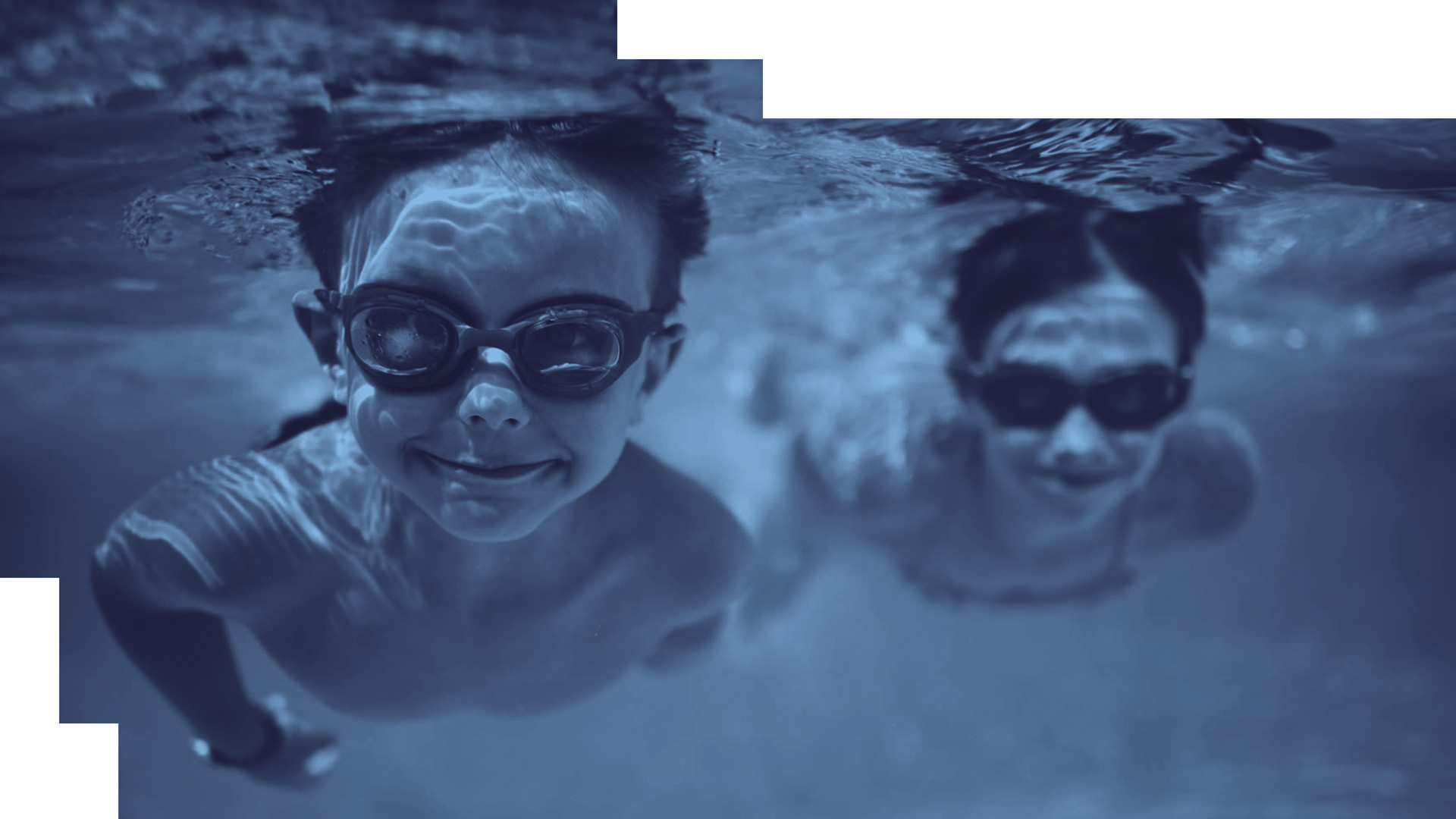Toolkit
This pedagogical toolkit has been developed by swimming instructors and aquatic specialists from the 7 countries involved in the project. The video resources and accompanying explanations are categorised according to the dimensions they develop in the Aquatic Literacy Model. Some tasks are designed to develop multiple dimensions simultaneously. Simply hover over the dimensions you are interested in and you will access to a series of tasks you can suggest to children group to increase their level of aquatic literacy.
Definition of aquatic literacy
“A dynamic state of individual aquatic education that enables lifelong voluntary and safe engagement in a wide range of aquatic physical activity opportunities, supported by the development or preservation of essential motor, psycho-social and cognitive skills, as well as the overlap between them, related to movement experiences in, on and around water”.
Reférences :
Mekkaoui L, Vogt T., Camporelli F, Costa AM, Costa MJ, De Martelaer K, D’Hondt E, Garrido ND, Gandrieau J, Kwasna A, Ljødal I, Olstad BH, Rejman M, Rudnik D, Santos CC, Schnitzler C, Simonsen E, Soares S, Staub I, Van Droogenbroeck L, Potdevin F. Journal of Teaching in Physical Education (accepted)
This definition is supported by the whole consortium of the ALFAC project and additional contributors
- Belgium: De Martelaer K, D’Hondt E, Van Droogenbroeck, L & Jidovtseff B
- France: Camporelli F, Foehrle D, Legrand A, Mekkaoui L, Potdevin F, Sidney M
- Germany: Staub I, Vogt T & Brinkschulte M, Fischer S, Schlapkohl N
- Lithuania: Mankienne U, Vilnius M
- Norway: Ljødal I, Olstad BH, Simonsen E
- Poland: Kwasna A, Rejman M, Rudnik D
- Portugal: Costa AM, Costa MJ, Fernandes Ricardo, Garrido ND, Rodrigues, Santos CC, Villas-Boas JP
If you would like to take part in this international project to share experiences, please contact us: project-alfac@univ-lille.fr
